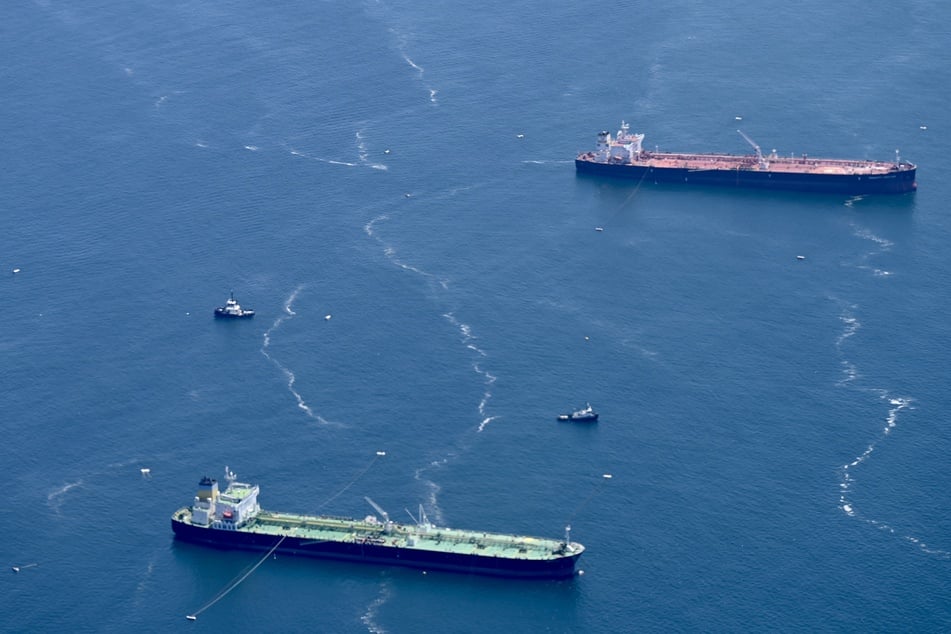Trump sinks international plan to cut ship carbon emissions
London, UK - An international vote to formally approve cutting maritime emissions was delayed by a year on Friday, in a victory for the US, which opposes the carbon-cutting plan.

The London-based International Maritime Organization (IMO), which is the shipping body of the United Nations, voted in April for a global pricing system to help curb greenhouse gases.
But a vote due Friday on whether to formally approve the deal was delayed until next year after President Donald Trump threatened sanctions against countries backing the plan.
Delegates instead voted on a hastily arranged resolution to postpone proceedings, which passed by 57 votes to 49.
"I am outraged that the International Maritime Organization is voting in London this week to pass a global Carbon Tax," Trump wrote on his Truth Social platform Thursday.
"The United States will NOT stand for this Global Green New Scam Tax on Shipping."
A Russian delegate described proceedings as "chaos" as he addressed the plenary on Friday after talks had lasted into the early hours.
Russia joined major oil producers Saudi Arabia and the United Arab Emirates in voting against the carbon-reduction measure in April, arguing it would harm the economy and food security.
IMO Secretary-General Arsenio Dominguez, representing 176 member states, pleaded Friday that he hoped there would be no repeat of how the week's discussions had gone.
An EU source told AFP that "many countries have changed their minds under pressure from the US."
Efforts to tackle greenhouse gas emissions in shipping industry

Ahead of this week's London gathering, a majority 63 IMO members that in April voted for the plan had been expected to maintain their support and to be joined by others to formally approve the NZF.
Argentina, which in April abstained from the vote, has said it will now oppose the deal.
Leading up to Friday's decision, China, the European Union, Brazil, Britain, and several other members of the IMO reaffirmed their support.
The NZF requires ships to progressively reduce carbon emissions from 2028, or face financial penalties.
Shipping accounts for nearly 3% of global greenhouse gas emissions, according to the IMO, while the CO2 pricing plan should encourage the sector to use less polluting fuels.
The Philippines, which provides the most seafarers of any country, and the Caribbean islands, focused on the cruise industry, would be particularly impacted by visa restrictions and sanctions.
In order to be adopted, the framework needs the backing of two-thirds of 108 voting IMO members who belong to a long-standing international convention for the prevention of pollution from ships, known as MARPOL.
The plan would charge ships for emissions exceeding a certain threshold, with proceeds used to reward low-emission vessels and support countries vulnerable to climate change.
Pacific Island states, which abstained in the initial vote over concerns that the proposal was not ambitious enough, are now expected to support it.
If the global emissions pricing system was adopted, it would become difficult to evade, even for the US.
IMO conventions allow signatories to inspect foreign ships during stopovers and even detain non-compliant vessels.
Cover photo: Collage: DANIEL SLIM / AFP & Kevin Dietsch / GETTY IMAGES NORTH AMERICA / Getty Images via AFP
